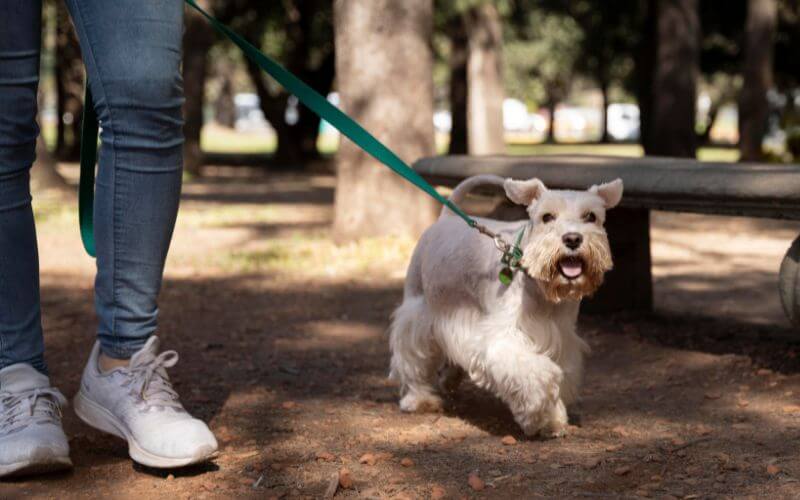Our furry companions' well-being extends beyond regular walks and belly rubs—it's deeply rooted in their gut health. Just like in humans, a balanced and thriving gut is crucial for a dog's overall health and vitality. In this blog, we'll delve into the intricacies of dog gut health, exploring its importance, signs of imbalance, and give practical tips on how to improve your dog’s gut health to ensure their tummy is in tip-top shape.
Understanding Dog Gut Health
The Gut Microbiome:
Dogs have a diverse community of microorganisms in their digestive tracts, collectively known as the gut microbiome. This bustling ecosystem of bacteria, fungi, and other microbes plays a pivotal role in digestion, nutrient absorption, and immune system regulation. The composition and abundance of these microorganisms can vary among individual dogs and may be influenced by factors such as diet, genetics, age, and environment. Maintaining a balanced gut microbiome is crucial for your dog's health. Feeding our dogs with good gut bacteria for optimal health and reduced risk of disease such as obesity, arthritis, cancer is scientifically proven in published papers showing the “Role of Phytonutrients in Canine Health” and the importance of feeding the rainbow and how the “Microbiome Biodiversity Promotes Skin Health in Dogs”
What happens when there is an imbalance in your dog’s gut microbiome?
An imbalance in the gut microbiome, commonly referred to as dysbiosis, contributes to various health issues in dogs. The gut microbiome plays a crucial role in maintaining a delicate balance of microorganisms that aid in digestion, nutrient absorption, and overall immune system function. In dogs, dysbiosis has been associated with gastrointestinal disorders, causing symptoms such as diarrhoea, constipation, and irritable bowel syndrome. Additionally, research suggests a correlation between an imbalanced gut microbiome and the development of allergies in dogs, as the intricate interplay between the immune system and the stomach microbiome is disrupted. We have a reminderin this published study (Lyu and colleagues, 2018) that dogs are not wolves and have a completely different gut microbiome. The study outlines that dogs fed a raw meat diet can end up with dysbiosis - the growth of too many bad bacteria in the gut.

Signs of an Unhappy Gut
Digestive Upsets:
Persistent diarrhoea, vomiting, or constipation, can serve as crucial indicators of an underlying imbalance in the gut. These symptoms may signal disruptions in the normal functioning of the dog's gastrointestinal tract, often attributed to factors like scavenging, infections, food allergies, or changes in the gut microbiome. Diarrhoea, characterized by loose and watery stools, can result from an overgrowth of harmful bacteria or viral infections. Vomiting may be triggered by ingesting toxic substances or a sudden dietary change. On the other hand, constipation, the difficulty in passing stools, may be linked to inadequate fibre intake or dehydration.
Food Allergies or Sensitivities:
Dogs experiencing frequent itching, recurring ear infections, or gastrointestinal issues may be exhibiting symptoms of food intolerances, often associated with their gut health. Food intolerances occur when a dog's digestive system has difficulty processing certain ingredients in their diet, leading to various adverse reactions. Itchy skin, manifested through scratching or excessive licking, can be a sign of an allergic response to specific food components. Ear infections may also be linked to food sensitivities, as inflammation in the digestive system can affect other parts of the body.
Low Energy Levels:
If you notice that your dog is displaying lethargy or a decrease in usual activity levels, it could be an indication of an unhappy tummy impacting nutrient absorption. A dog's overall energy and vitality are closely tied to the health of its gastrointestinal system, which plays a key role in absorbing essential nutrients from the diet. When the gut is not functioning optimally, nutrient absorption may be compromised, leading to a potential decrease in energy levels and overall activity.

Tips for Promoting Dog Gut Health
High-Quality Nutrition:
Diet has a significant impact on the composition of the dog gut microbiome. The type and amount of dietary fibres, proteins, and other nutrients can shape the microbial community. Changes in diet can lead to shifts in the abundance of specific microbial species. Provide a balanced and nutritious diet rich in high-quality proteins, fibres, and essential nutrients. Consider foods with added supplements to support a healthy gut microbiome. Probiotics (beneficial bacteria) and prebiotics (food for beneficial bacteria) into your dog's diet. HOWND Plant-Powered Superfood is hypoallergenic, vet approved and can help restore and maintain a balanced gut microbiome. Dogs, like us, should be “eating the rainbow” ideally 30 different plants a week - colourful plants are high in substances called polyphenols that have high microbiome diversity; as well as foods high in digestible fibres.
Stress Management:
Dogs are susceptible to stress, and various factors such as changes in routine, exposure to new environments, or exposure to loud noises can trigger stress in them. Managing stress is crucial not only for their mental well-being but also for maintaining a healthy tummy. Stress can have a significant impact on the digestive system, potentially leading to issues such as diarrhoea, vomiting, or changes in appetite. The connection between the gut and the brain, known as the gut-brain axis, highlights how stress can influence the balance of the gut microbiome and overall digestive function. Implementing strategies to alleviate stress, such as maintaining a consistent routine, providing a secure and comfortable environment, and offering positive interactions, can positively impact a dog's digestive health.
Hydration:
Adequate water intake is a fundamental aspect of supporting proper digestion and nutrient absorption in dogs. Water plays a crucial role in breaking down food, facilitating the absorption of essential nutrients, and maintaining overall hydration. Ensuring that your dog has constant access to clean, fresh water is essential for promoting optimal digestive function.
Regular Exercise:
Physical activity is not only essential for a dog's overall well-being but also plays a vital role in maintaining a healthy gut. Regular exercise contributes to the well-functioning of the digestive system in several ways. It helps stimulate the movement of the digestive tract, promoting efficient digestion and lowering the chance of issues like constipation. Additionally, exercise supports a healthy metabolism, which aids in nutrient absorption and utilization.

As devoted pet parents, it's our responsibility to prioritize our dogs' digestive health. A happy tummy leads to a joyful, active, and thriving canine companion. An imbalance can lead to digestive issues, allergies, and a weakened immune system. Factors such as diet, stress, medications, and environmental changes can influence the delicate balance of the microbiome. By understanding the signs of an imbalanced gut and implementing simple, proactive measures, we can ensure our furry friends enjoy a life filled with vitality and well-being. So, let's unleash the wellness within our dogs! For gut health with great taste, HOWND Superfood contributes to a balanced diet that can positively influence the gut microbiome.





